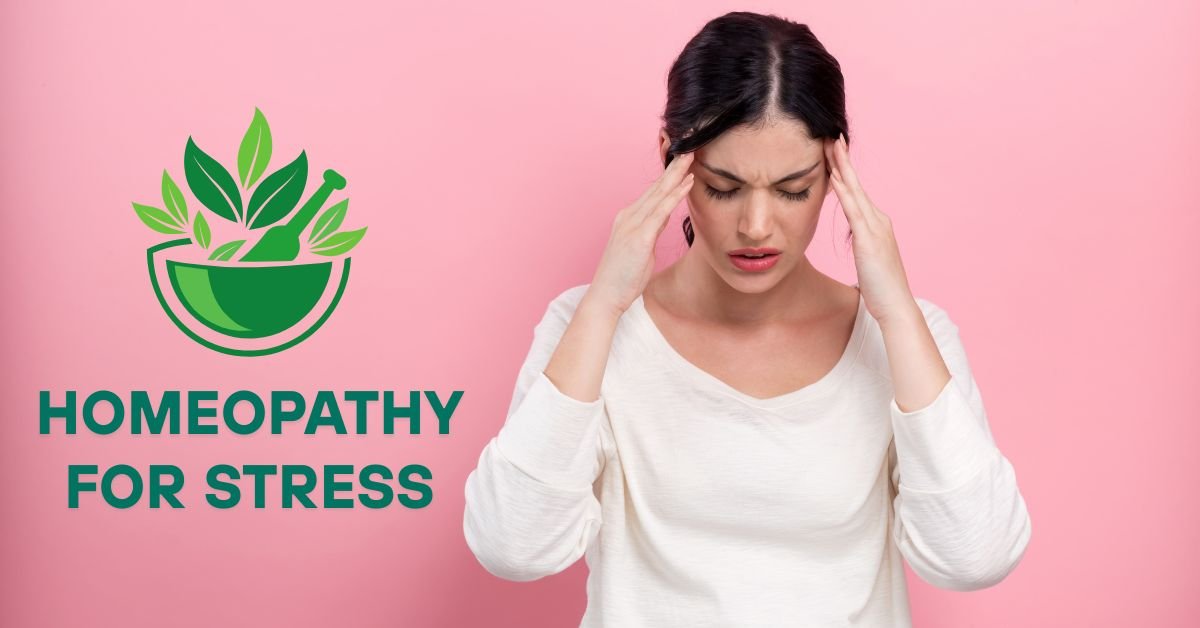In an age of fast pace, digital overload and mounting responsibilities stress has become a silent epidemic. While some stress can be motivational, chronic stress can affect both mental and physical health leading to anxiety, insomnia, fatigue, depression, digestive issues and more.
Among the sea of pharmaceutical options and therapy models homeopathy stands as a time tested, holistic and personalized system of healing. This article will explore in depth how homeopathic medicine approaches stress, the underlying principles it follows and how specific remedies can bring long lasting relief – not by masking symptoms but by gently restoring inner balance.
What is Homeopathy?
Homeopathy is a natural system of medicine developed in the late 18th century by Dr. Samuel Hahnemann, a German physician. It is based on three main principles:
- The Law of Similars (Like Cures Like): A substance that causes symptoms in a healthy person can in small doses treat those same symptoms in a sick person.
- Minimum Dose: Remedies are given in minute, highly diluted quantities to avoid toxicity and stimulate the body’s self healing response.
- Individualization: Every individual is unique. Two people with the same condition may get entirely different remedies based on their emotional state, body type, past traumas and overall constitution.
Understanding Stress Through the Homeopathic Lens
Unlike conventional medicine which often targets specific symptoms homeopathy sees stress as a constitutional imbalance. It acknowledges that mental and emotional stressors – grief, trauma, anxiety, work pressure, emotional suppression etc. – can manifest as physical symptoms and vice versa.
The goal of the homeopathic practitioner is to understand the origin and impact of the stress and the unique coping mechanisms of the individual before selecting the remedy.
Stress Can Manifest As:
- Mental Symptoms: Anxiety, irritability, lack of focus, fear, memory issues
- Emotional Symptoms: Sadness, overreaction, apathy, emotional withdrawal
- Physical Symptoms: Headaches, insomnia, digestive problems, fatigue, palpitation.

Top 15 Homeopathic Medicines for Stress
1. Ignatia Amara
- Best For: Acute emotional stress, grief, loss, heartbreak
- Personality: Sensitive, introverted, emotionally intense
- Symptoms: Crying spells, lump in throat, mood swings, desire to be alone
2. Argentum Nitricum
- Best For: Anticipatory anxiety (before exams, meetings, public speaking)
- Personality: Nervous, impulsive, always in a hurry
- Symptoms: Diarrhea, trembling, palpitations, fears about the future
3. Arsenicum Album
- Best For: Chronic anxiety, perfectionism, obsessive thinking
- Personality: Restless, highly organized, fearful
- Symptoms: Worry about health, cleanliness, frequent checking behavior
4. Natrum Muriaticum
- Best For: Long-term emotional suppression, past grief
- Personality: Reserved, self-contained, dislikes sympathy
- Symptoms: Headaches, insomnia, silent sadness
5. Gelsemium Sempervirens
- Best For: Stage fright, performance anxiety
- Personality: Timid, avoids confrontation, lacks confidence
- Symptoms: Weakness, trembling, dizziness, diarrhea before stress events
6. Lycopodium Clavatum
- Best For: Low self-confidence, fear of failure
- Personality: Insecure, intellectual, hides weaknesses
- Symptoms: Digestive troubles from anxiety, stage fright, timid with authority
7. Kali Phosphoricum
- Best For: Mental and physical burnout, nervous exhaustion
- Personality: Overworked, mentally tired, easily startled
- Symptoms: Weak memory, fatigue, sleeplessness, irritability
8. Aconitum Napellus
- Best For: Sudden panic attacks, shock, trauma
- Personality: Previously healthy, now nervous after a scare
- Symptoms: Palpitations, shortness of breath, intense fear of death
9. Pulsatilla Nigricans
- Best For: Emotional instability, need for comfort
- Personality: Gentle, weepy, affectionate, seeks reassurance
- Symptoms: Stress worsens with rejection or abandonment, changeable moods
10. Sepia Officinalis
- Best For: Stress from multitasking and exhaustion (esp. in women)
- Personality: Irritable, indifferent, emotionally distant
- Symptoms: Sadness, hormonal imbalance, aversion to loved ones
11. Silicea
- Best For: Timid individuals with fear of failure and public speaking
- Personality: Intelligent but lacks courage, easily embarrassed
- Symptoms: Chilly, anxious about small matters, avoidance of responsibility
12. Chamomilla
- Best For: Stress in children or hypersensitive adults
- Personality: Irritable, easily offended, highly sensitive to pain or stress
- Symptoms: Angry outbursts, tantrums, inability to be consoled
13. Nux Vomica
- Best For: Stress from overwork, stimulants, competitive lifestyle
- Personality: Ambitious, driven, easily angered
- Symptoms: Irritability, digestive problems, insomnia from overthinking
14. Phosphoric Acid
- Best For: Mental dullness and apathy after emotional or physical exhaustion
- Personality: Indifferent, lacks motivation, mentally drained
- Symptoms: Weakness, forgetfulness, hair loss under stress
15. Calcarea Carbonica
- Best For: Stress due to insecurity and fear of breakdown
- Personality: Responsible, cautious, easily overwhelmed
- Symptoms: Anxiety, fear of insanity or poverty, slow digestion
Note: We strongly suggest that you consult with an experienced homeopathic doctor before taking any medicine or remedy. You can book your online homeopathy consultation with Dr. Pratibha Tanwar.
Individualization: The Heart of Homeopathic Stress Relief
Homeopathy is not a one-size-fits-all solution. A good homeopath will consider:
- Your triggers (grief, deadlines, relationships, trauma)
- Modalities (what makes it worse or better)
- Physical symptoms (sweating, sleep issues, digestion, etc.)
- Personality traits (introvert vs extrovert, expressive vs reserved)
This leads to a deeply personal remedy that not only relieves stress but also overall well-being, resilience and vitality.

Complementary to Modern Medicine
Many ask: Can homeopathy be used with conventional treatment? Yes, absolutely. Homeopathy works well as:
- A standalone treatment for mild to moderate stress
- A complementary approach to therapy or medication
- A preventative tool to build emotional resilience
But always consult with a qualified practitioner especially in severe cases of clinical depression, panic disorders or trauma related conditions.
Additional Tips for Stress Relief with Homeopathy
Homeopathic treatment works better when combined with lifestyle changes like:
- Mindfulness or meditation
- Physical exercise like walking, yoga or dance
- Deep breathing techniques
- Digital detox and reducing screen time
- Journaling or creative expression
- Healthy sleep routine
Safety, Side Effects and Limitations
- Homeopathic remedies are safe and non-toxic even for children and pregnant women.
- Because they are ultra-diluted there are no chemical side effects.
- But self-prescription should be avoided for chronic or complex cases. Always consult a certified homeopath.
Conclusion
Homeopathic medicine offers a gentle yet powerful way to manage stress – one that honours the uniqueness of each individual. Instead of numbing the senses or suppressing emotions, it addresses the root causes, emotional patterns and constitutional imbalances.
As stress becomes a hallmark of modern life, holistic systems like homeopathy remind us that healing isn’t just about getting rid of symptoms – it’s about restoring harmony in the body, mind and spirit.
FAQs
Is homeopathy good for anxiety and panic attacks?
Yes, with individualized treatment homeopathy can be very effective for anxiety conditions.
How long does it take to see results?
For acute stress relief can be seen within hours or days. Chronic stress may take weeks to months of consistent treatment.
Can I take homeopathic medicines with allopathic medication?
Generally yes, but inform both your doctors to avoid any overlap or interference in treatment.
Are there any side effects?
Homeopathic remedies are safe and side effect free when used under professional guidance.


